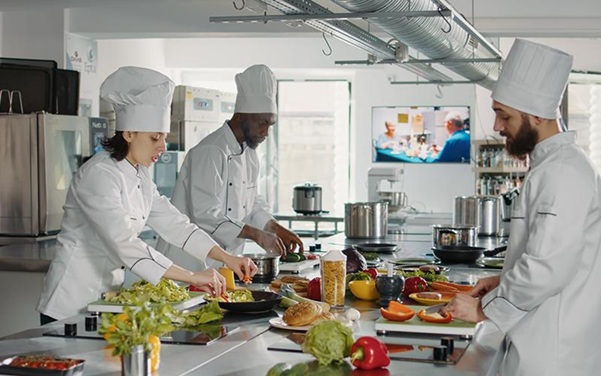Hygiene and Safety Standards of Live Station Catering
Live station catering has become increasingly popular at weddings, corporate functions, and private gatherings. Guests enjoy the interactive element of watching chefs prepare food on the spot, and hosts see it as a way to elevate the dining experience. However, behind the showmanship, hygiene and safety standards remain a critical factor. Any catering company in Singapore offering live stations must adhere to strict requirements to ensure food safety, guest confidence, and compliance with regulations.
Regulatory Requirements for Live Station Catering
The city-state has some of the most stringent food safety regulations in the region, enforced by the Singapore Food Agency (SFA). A licensed catering company is required to meet food hygiene standards in both their central kitchen and live event setups. This requirement extends to portable facilities, equipment maintenance, and staff training. Temporary setups must have the same level of control as permanent kitchens, meaning proper food storage, segregation of raw and cooked items, and temperature control systems are non-negotiable. Compliance is not only a matter of avoiding penalties but also of protecting public health.
Safe Food Handling Practices
Live stations involve cooking and serving food in front of guests, which makes safe food handling practices even more visible. Catering staff must ensure raw ingredients are stored at safe temperatures until needed, while cooked items must be served promptly or kept in warming equipment at the right heat levels. Utensils and cutting boards must be separated by function to prevent cross-contamination. In addition, hand hygiene remains one of the simplest yet most effective safeguards. Chefs and service staff are trained to wash their hands regularly, use gloves appropriately, and handle food with care in line with industry standards.
Staff Training and Certification
A catering company providing live stations must employ food handlers with valid Food Hygiene Certificates. Staff undergo training on food safety principles, which are renewed every five years, ensuring they remain updated on the latest practices. Beyond certification, many reputable companies invest in regular in-house training sessions and audits to reinforce hygiene habits. This ongoing education builds consistency, particularly in high-pressure event environments where errors are more likely to occur. Guests may not always notice the technical details, but they do observe professionalism, clean uniforms, and proper handling, which enhances trust in the service provider.
Equipment and Environmental Standards
Setting up a live station is more than arranging a table and stove. Equipment must be sanitised, well-maintained, and suitable for outdoor or indoor environments. Portable sinks, waste disposal systems, and protective coverings are often required, especially for events in open venues. Catering companies also need to factor in ventilation to minimise smoke and odours while ensuring safety in handling open flames. The cleanliness of serving counters, utensils, and even decorative setups all contribute to maintaining hygiene standards. Event planners and clients increasingly prioritise providers who can demonstrate a structured approach to equipment hygiene.
Guest Safety and Confidence
Ultimately, the responsibility of a catering company offering live stations goes beyond regulatory compliance. It extends to guest confidence and comfort. Visible hygiene practices, such as chefs wearing gloves, masks, or hairnets, and the use of sneeze guards at stations, reassure guests that their health is a priority. Since more locals are becoming more conscious of food safety after the pandemic, catering companies that visibly emphasise hygiene earn greater trust and repeat business. Guest safety is not just about preventing foodborne illnesses but also about building a reputation for reliability in the competitive catering industry.
Conclusion
Live station catering combines entertainment with dining, but it also raises the stakes for hygiene and safety. From regulatory compliance to food handling, staff training, equipment maintenance, and visible safety measures, every detail matters. A professional catering company in Singapore knows that live stations are not only a showcase of culinary skill but also of operational discipline. Remember, assurance of hygiene standards is what turns a live station from a simple food counter into a trusted highlight of any event.
Contact Elsie’s Kitchen and let us make your event memorable without compromising on guest confidence.


